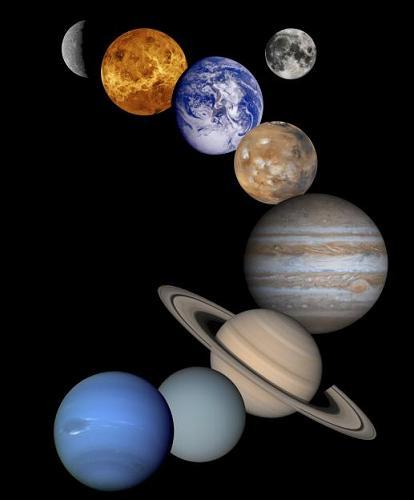Says Zina exposer, Michael Brown, against the background of the dispute between the supporters of the expansion of the solar system and the hooligans * Brown, surprisingly, joins the hooligans

One of the people who stands to benefit from the expansion of the solar system to 12 planets is Michael Brown, who discovered at least a dozen additional bodies that one day could be considered planets, but among the reporters of the news agencies who interviewed him at the World Astronomical Union convention, which is currently taking place in Prague, the impression was created that he is not satisfied.
"When I was a kid, planets were something special," he said. "The definition undoes the magic of the solar system."
It was Brown who discovered the planet larger than Pluto, which accelerated the process that led to the current discussion. However, Brown does not believe that his discovery, or even Pluto that was discovered in 1930, deserve to be considered planets.
On his website at the California Institute of Technology, the astronomer explains why Pluto has kept its title for so long. "I believe that astronomers are sentimental, like other human beings, and cannot, emotionally, remove Pluto from the list of planets. It is possible that they are afraid of the criticism that will follow this step."
Last week, a committee - appointed by the World Astronomical Union, with the aim of expanding the solar system to 12 planets compared to the existing nine - met in a first attempt of its kind to establish a scientific definition for the term "planet". According to the definition, an object is considered a planet if its diameter is at least 800 kilometers, it orbits the Sun and has a mass of 1/12,000 that of the Earth.
Pluto will maintain its status, and it will be joined by three other bodies in the solar system, including Pluto's moon Charon, the asteroid Keres and the object that Brown discovered in 2003 UB313, which was unofficially named "Xena".
Brown said that the proposition that a planet is any round body that orbits the Sun is too general and would result in no ice ball being left behind, which would cause the Solar System to collapse.
He added his fear that by the time his 13-month-old daughter, Lila, is old enough to count the planets, there will already be hundreds of them.
Brown is not a member of the committee that determined the definitions, and apparently will not have his say in the discussion that will take place before the final vote, on Thursday. "I feel like an 'outsider'. It's a strange situation for me," said the 41-year-old astronomer, who was named one of the 100 most influential people in 2006 by Time magazine.
"I don't agree with him, but I respect him," said Gabor Basri of the University of California, Berkeley, who has known Brown since they were students. Basri belongs to the camp that believes that Pluto is a real planet.
According to Brown's calculations, at least 14 of the bodies he discovered, in addition to Xena, are "good candidates" to be planets, if the proposal of the applicants to expand is accepted. This would make Brown one of the most prolific planet hunters. However, he supports an eight-planet solar system, or alternatively that Xena will join as the tenth planet, due to being larger than Pluto, and thus the list will be closed.
"When people realize that the true number of planets is going to be much larger, they will shake their heads and say, 'The astronomers have gone crazy,'" Brown concluded.
It is estimated that the vote will be accepted on Thursday by a narrow margin.
Drafting and editing: H. J. Glykasm, translations and technical writing
